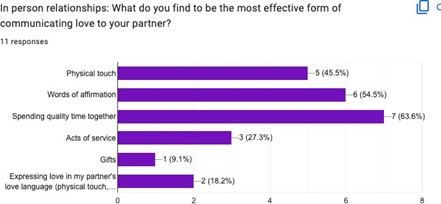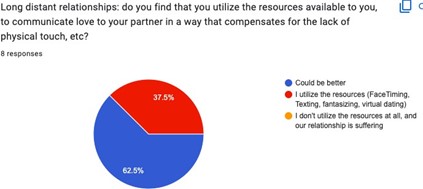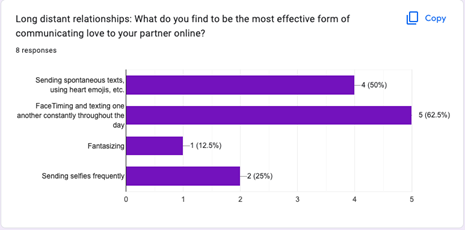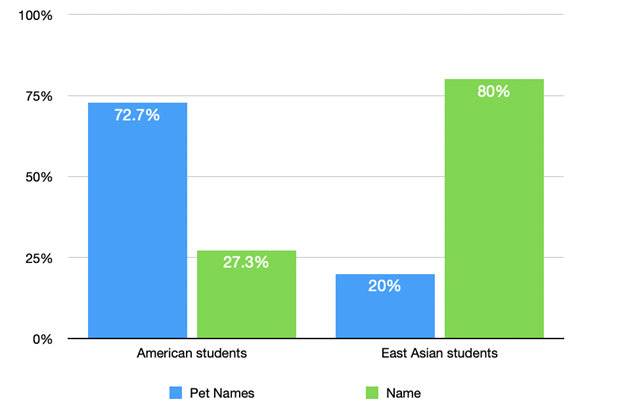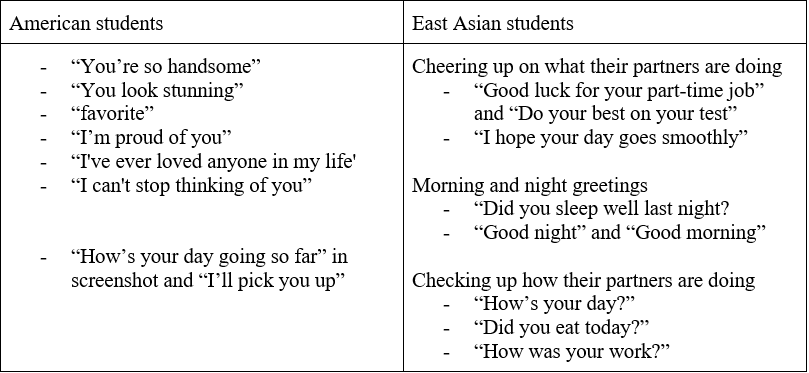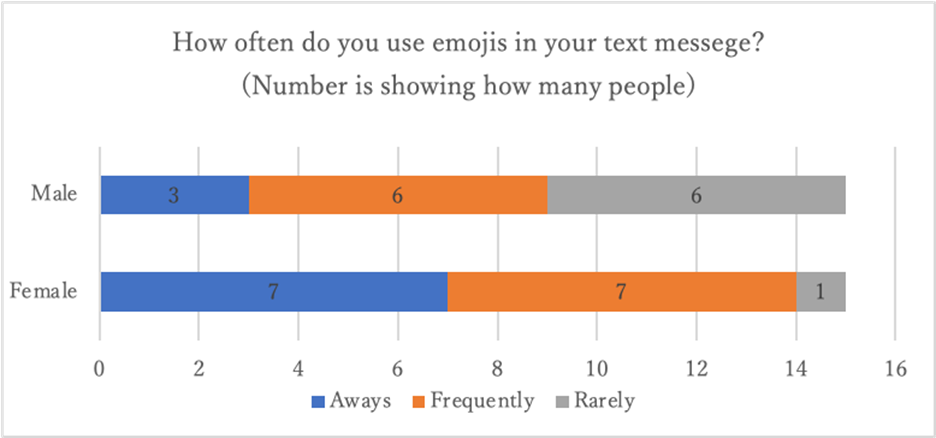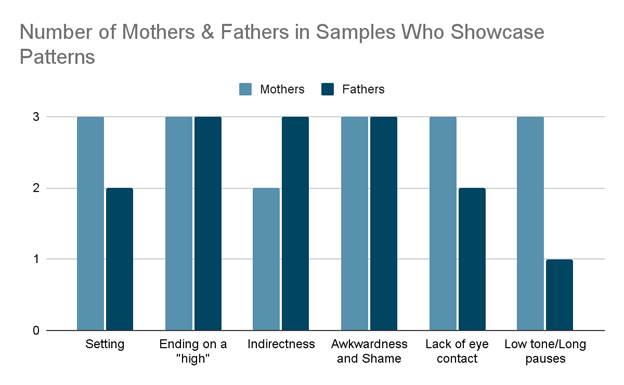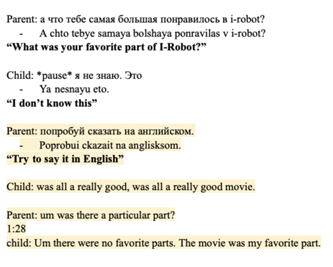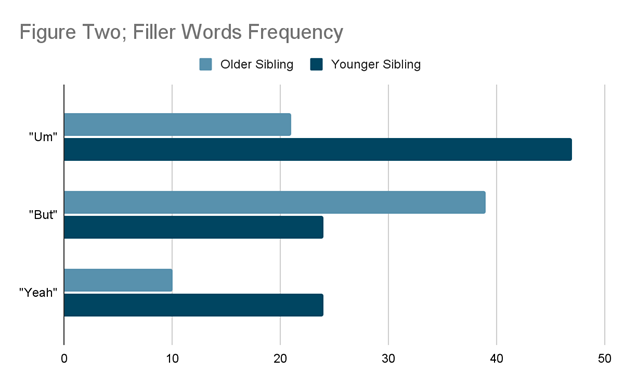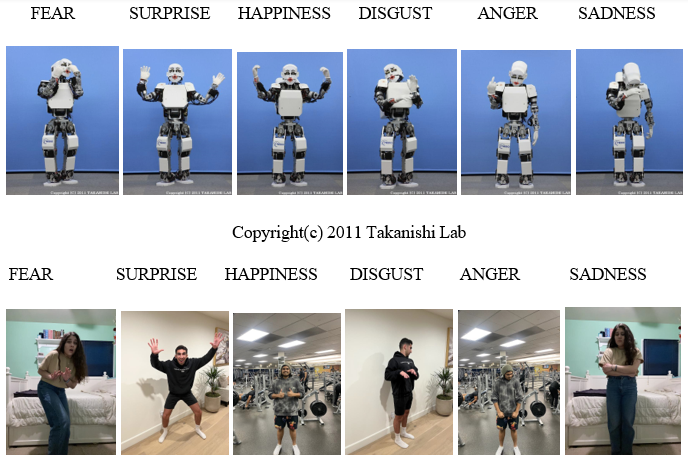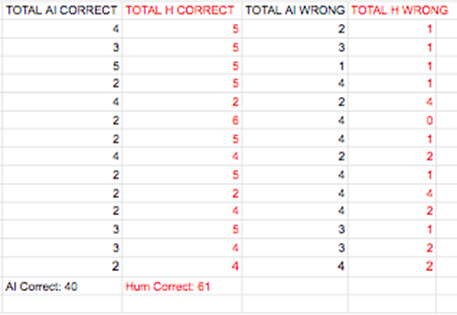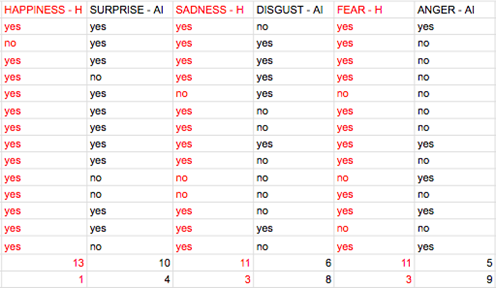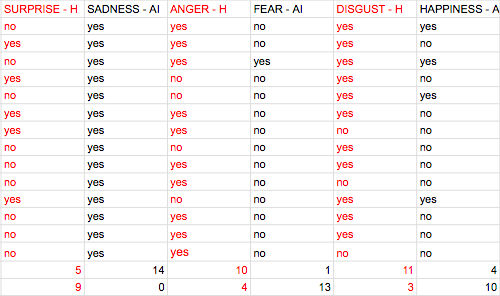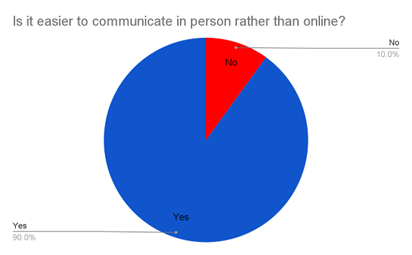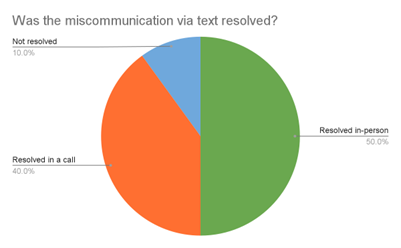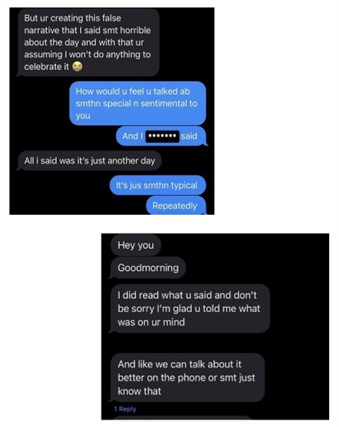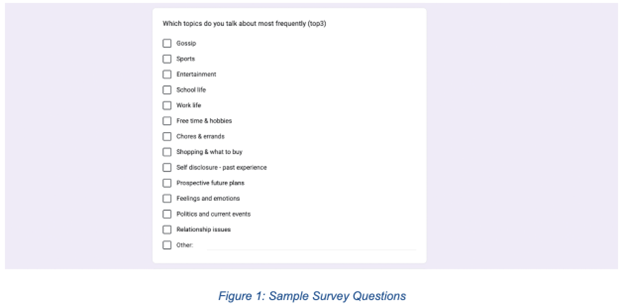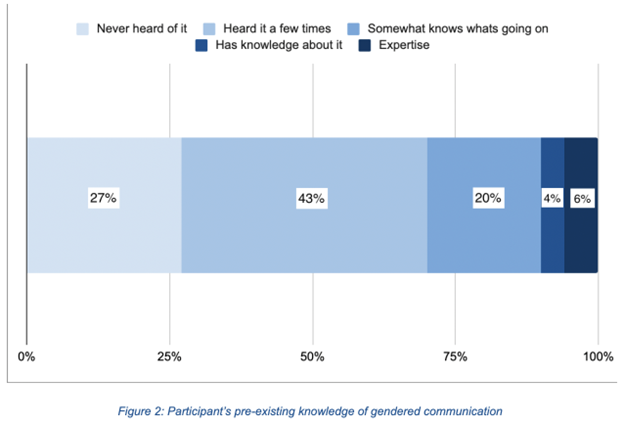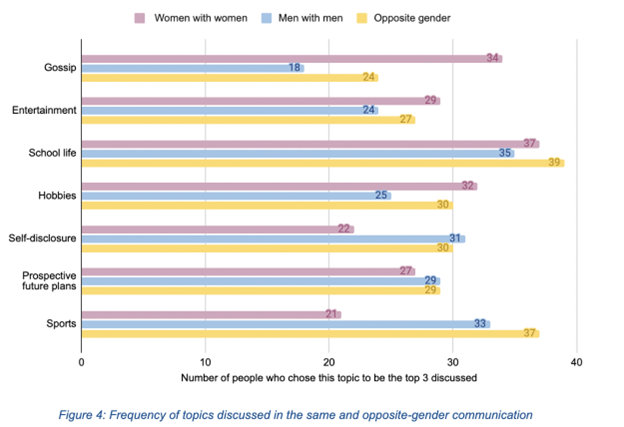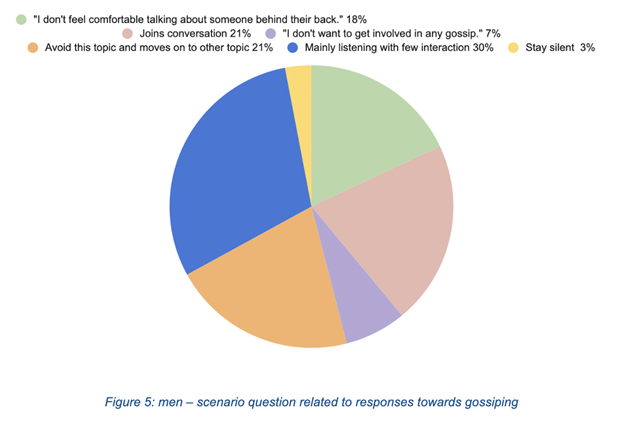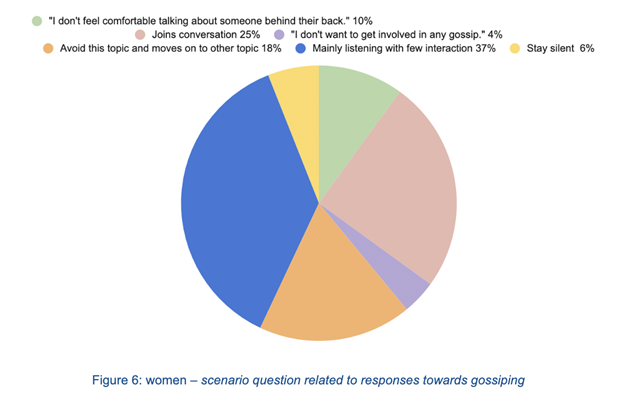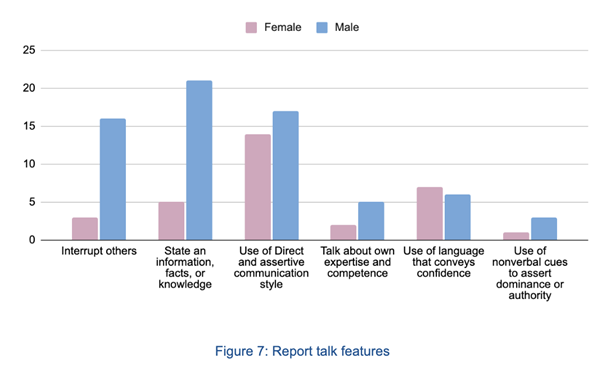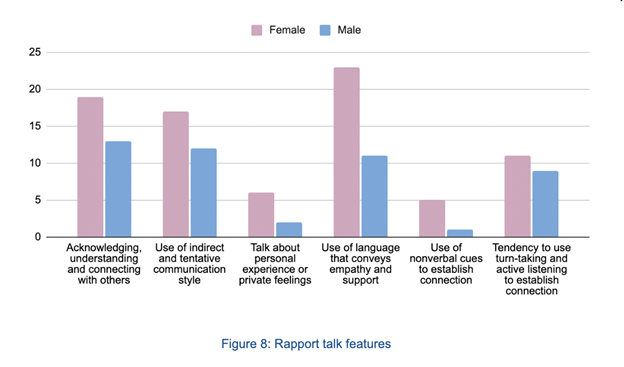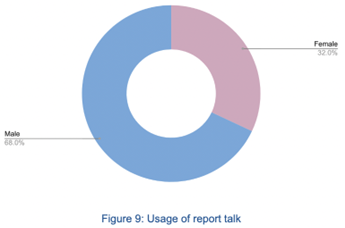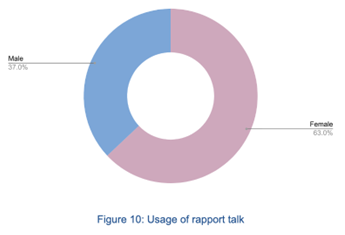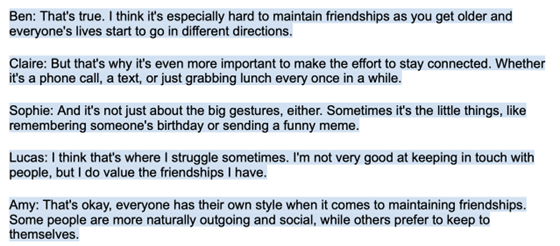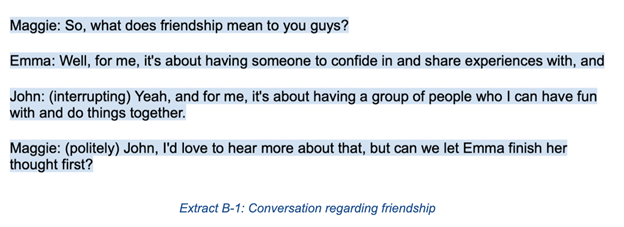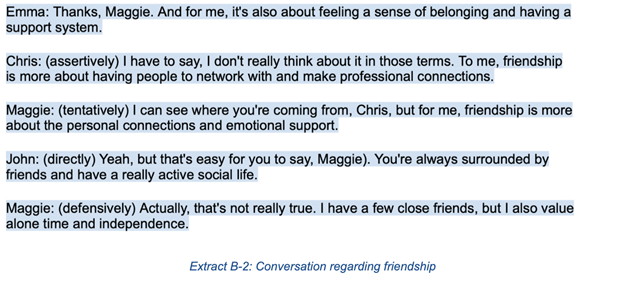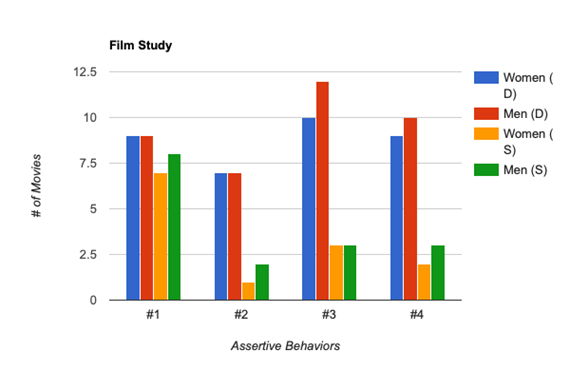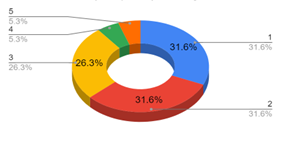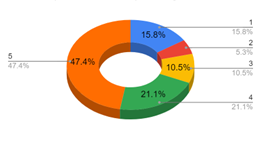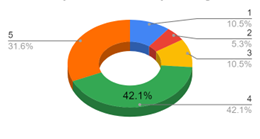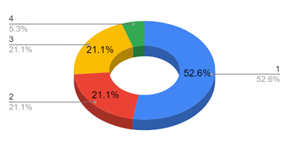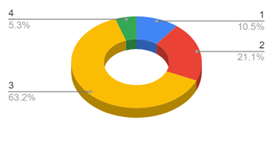Manspreading: Myth, Message, or Management?
Cecilia Schmitz, Tommy Silva, Sinahi Torres, Ye Won Yoon
Communication takes a variety of forms including communication through the use of body language, but oftentimes different genders have shown differences in the way they use it to portray themselves. Previous research has indicated that men will participate in “manspreading” which consists of spreading out typically in public spaces, while women accommodate others. Other research shows that people tend to spread out when they feel a sense of dominance. In order to fill any possible knowledge gap, we formed a study to discover how relevant this research is to UCLA undergraduates. Our study was based on the research question: Do men and women use spatial movement and orientation differently, and does this reflect their respective gender identity? We hypothesized that men do take up more space than women and that women’s contracted body language would only be around men. This left room for interesting questions: do men always take up more space? Do the way women use body language get influenced by the gender they are around? As you continue to read our study, you will uncover whether this is relevant or if we notice other trends amongst the students.
Introduction and Background
Body language can often better indicate a person’s expression than words and their face (Aviezer, et al., 2012). Many observations have shown body language differences between genders: men use it to assert dominance, whereas women accommodate others (Jane, 2017,). Using this, we saw how relevant it is to students at UCLA and compared whether this form of dominance is seen mainly amongst men, women, or both. Discourse is increasing about “man-spreading”: men seated and spreading their legs into others’ space (Vrugt, & Luyerink, 2000). We furthered this research focusing on the way that our target population takes up space and presents themselves through their body in their everyday life to see the difference and create a reflection of the current gender indexicality. We wanted to see if spatial orientation and body language are used to reinforce gender roles with a question: Do men and women use spatial movement and orientation differently, and does this reflect their respective gender identity? Based on current research, as well as our own observations on our fellow undergraduate UCLA population, we hypothesized that men will take up more space than women; however, we also predicted that women will occupy more space when they are only surrounded by women.
Methods
For the observational research method, we observed three different sample groups: only males, only females, and both together, in order to answer the question of if men and women use spatial movement and orientation differently. We observed and took photographs and timelapses to see if the subjects expanded or contracted their legs, turned their feet in or out, and folded or splayed their arms when sitting. We were interested in seeing how participants used their legs, arms, and feet to expand their body frame and occupy more space, used their extremities to contract and occupy less space, or simply rested to occupy their natural body frame position. To document this, we kept a chart of body positions after each observation. Here is a detailed explanation of how we specifically observed the male-only group:
We observed a group of 15 self-identifying males in a locker room: each male was seated and was spaced out so they were at least 1.5 feet from the person next to them, meaning they each had plenty of space to expand their body position however they wanted without coming into contact with the person next to them. Every single male sat in a position that occupied space beyond their body frame. Legs were the way that most men expanded their bodies, and for every man whose feet were placed on the floor, their feet were turned outwards. While leg and foot positions were used to expand body size 100% of the time, arm position changed very frequently. Overall, at least half of the males spent a significant amount of time with their arms within their body frame. We additionally observed a group of four females watching a movie on a bed in a dorm room: they were in closer proximity, trying to fit onto one bed. Each female had their legs contracted into each other, not expanding outwards. Three of the four females had their feet turned in and their arms folded; the fourth female had their feet under a blanket and thus not visible and their arms were splayed.
To see how our subjects’ observations reflected their respective gender identities and the body language that goes along with them by repeating this process with each observation group, we also conducted interviews in which we asked our subjects whether their friends when in a crowded space, assert their personal space or accommodate others. To analyze our data, we compared already existing research to our own observations, in order to figure out which, if any, of the theories are relevant to our findings. We then compared our answers with the observations collected on how body language is associated with gender and what the body language itself is associated with.
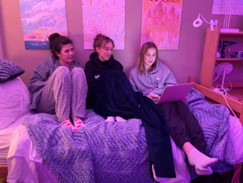
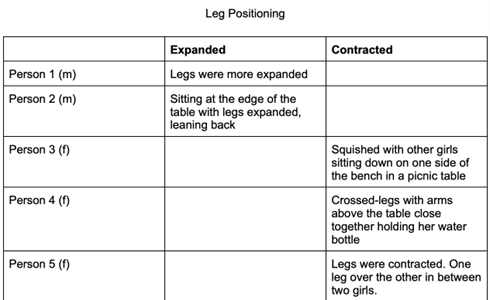
Results and Analysis (Observation Results and Interview Results)
Observation Results
Our results found that males generally took up more space; females in general tended to contract as seen by the graphs documenting each genders’ distribution in the form of body language: all 20 men expanded their legs and all 10 women contracted.
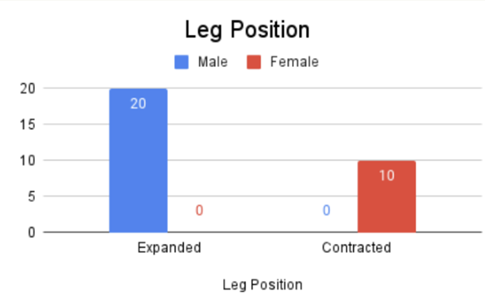
Our data was consistent with our hypothesis that men take up more space than women, but we incorrectly predicted that women’s contracted body language would only be around men; instead, they were contracted all of the time. For example, while observing a club meeting on campus, we observed that all three men took up space with their legs, had their feet turned in, and three out of the three had their arms around another chair. On the other hand, the three women that were observed kept their legs close to their bodies, they had their feet faced forward, and two out of the three kept their arms on their bodies. Additionally, the all-female group without the presence of men was mostly contracted, with their legs, feet, and arms withdrawn into themselves.
Interview Results
Our interview of UCLA undergrads largely indicated a perception that men take up more space with their body language than women. We did not want to limit their answers to yes or no and gave options on their body position they noticed they were in most of the time. All but 1 found that men expanded their body shape in asserting their personal space, while all but 2 expressed that female companions would accommodate their space for others. Another question that we focused on in the interview was one that asked respondents if they notice a particular way of how authoritative figures in their life take up space.
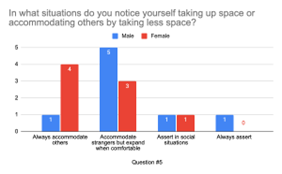
In this particular question, the responses varied in their positioning because they had to incorporate the many situations they were in. We hypothesized that there would be a mix of responses due to this. We also took into account that it could be a sensitive, abrupt question to ask the respondents and left it optional for them to answer.
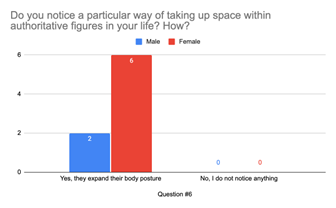
Out of 8 responses that we received, 6 females said that they did notice this pattern while 2 males said that they have noticed this trend. Although we can’t necessarily conclude a correlation between dominance and the way that people take up space, we do see a theme within our research and the participants in it.
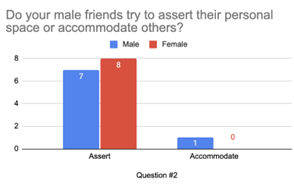
In the graph shown below, we are able to indicate that 7 out of 8 male participants believe that their male friends assert their space. Looking at the female participant’s response, it shows an unwavering belief that their male friends assert their space.
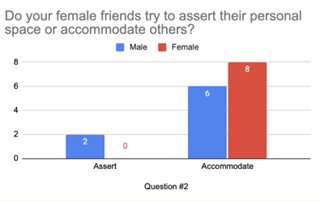
We also asked the question to focus on the female body positioning, the results are shown in the figure below. 2 out of 8 male participants felt their female friends asserted space, while 6 of them noticed them accommodating space. All of the female respondents listed that they notice their female friends in accommodating space for others.
Discussion and Conclusions:
Overall, this study was designed to acknowledge the way that we and others take up space which can help us be more considerate of how it comes off to others as well as utilize it to indicate different parts of our identity, whether it be masculinity, femininity, or authority. It is also important to take into consideration that there may be limitations to this study because it was performed in the time span of only ten weeks and was focused on a population limited to UCLA undergraduates. For example, in regards to the male-only data set, there are some unique features of this data set that could impact their body position. All of these males are soccer players. They were in their locker room and surrounded by their teammates; thus, they were in a room where they have spent a lot of time in and were surrounded by people who they are comfortable with, all of which could have a big impact on the way they chose to situate their body position. Nonetheless, these findings do suggest that men are typically more inclined to assert their space in social spaces while women will tend to contract when around any gender. Using the theoretical frameworks that we learned in class, we can also postulate that men consciously or subconsciously occupy more space, especially with their legs, to indicate their masculinity; women may contract their limbs to indicate femininity. However, based on our interview questions, our findings also suggest that people view power and position of authority as a factor linked to how much space people assert. In the future, it would be interesting to study how body language and gender identity are linked with authority; how do men and women use body language differently when they want to convey power?
Ethics Declaration
All participants gave their verbal consent to be studied for body language, and all participants voluntarily completed the Google Forms survey.
References
Ashkinazi, E. The “Fashion” of Manspreading and Socioeconomic Status: A Marxist and Feminist Analysis. https://delizian.net/pdfs/other/marxist-feminist-manspreading.pdf
Aviezer, H., Trope, Y., & Todorov, A. (2012). Body Cues, Not Facial Expressions, Discriminate Between Intense Positive and Negative Emotions. Science, 338(6111), 1225–1229. https://doi.org/10.1126/science.1224313
Jane, E. A. (2017). ‘Dude… stop the spread’: antagonism, agonism, and# manspreading on social media. International Journal of Cultural Studies, 20(5), 459-475. https://journals.sagepub.com/doi/pdf/10.1177/1367877916637151
Vrugt, & Luyerink, M. (2000). THE CONTRIBUTION OF BODILY POSTURE TO GENDER STEREOTYPICAL IMPRESSIONS. Social Behavior and Personality, 28(1), 91–103. https://doi.org/10.2224/sbp.2000.28.1.91
Wade, Lisa (2013). Gender and the body language of power—Sociological images. Retrieved February 3, 2023, from https://thesocietypages.org/socimages/2013/12/27/gendered-and-the-body-language-of-power
